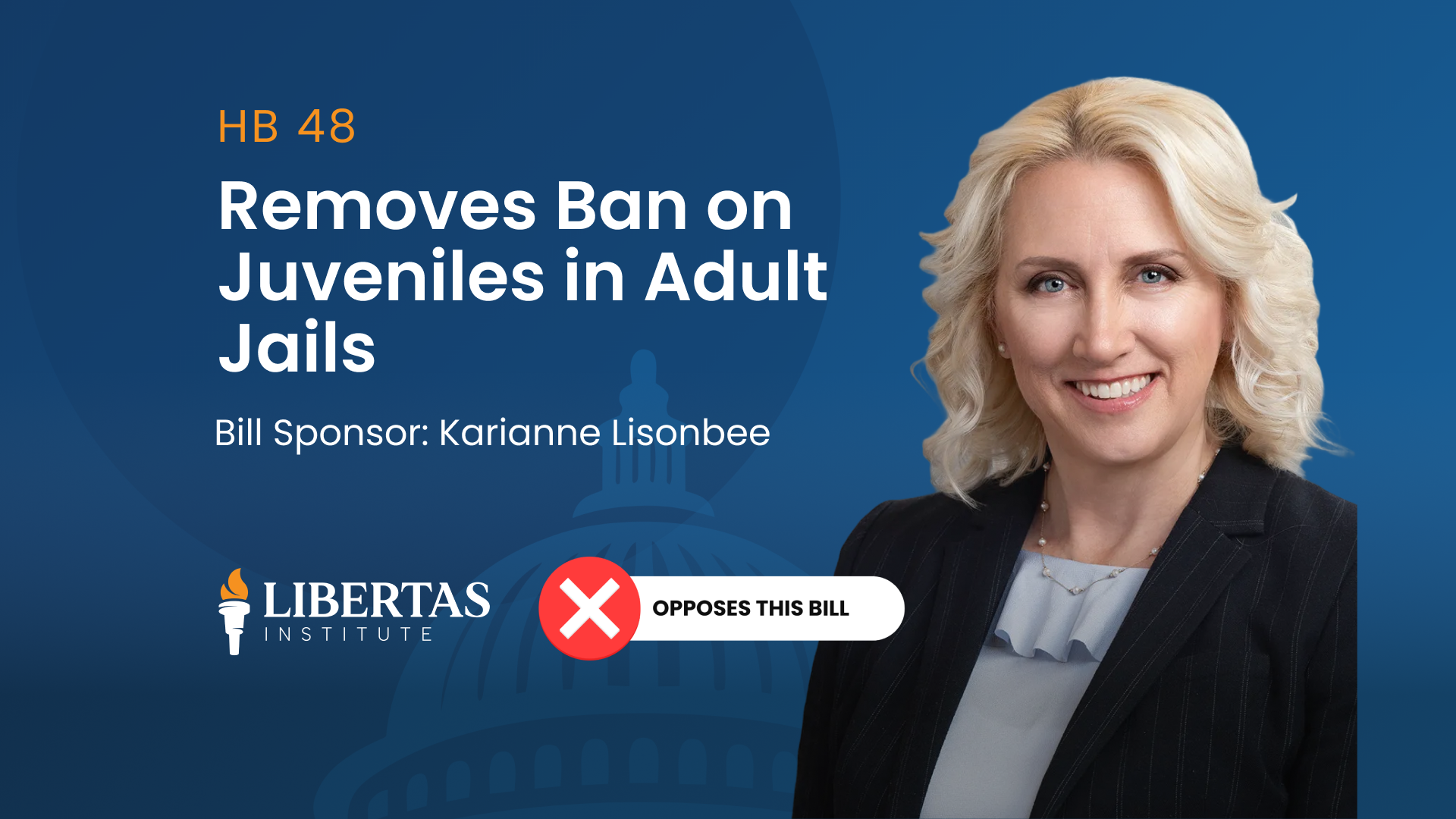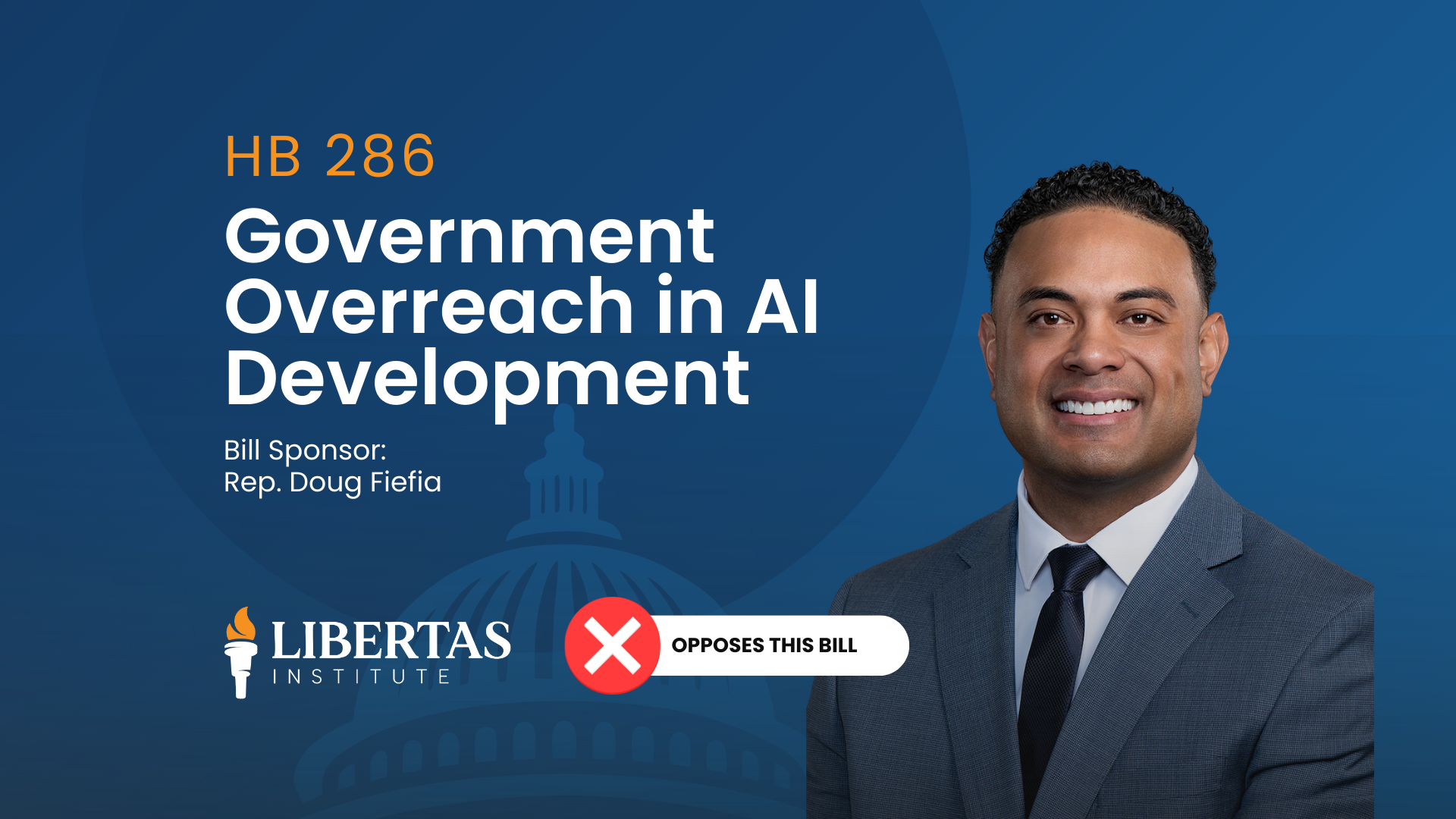To track the status of this bill, find it on our Legislation Tracker. Click here to contact the sponsor of the bill to share your thoughts, or click here to email your Senator and Representative about it.
Libertas Institute supports this bill
Civil asset forfeiture is among the more controversial policy issues, as this law lets government take property from people who have not necessarily been convicted of a crime. And in Utah, the issue has a controversial history that rightly angers many voters.
When “Initiative B” was being considered in 2000 by Utah voters — a measure designed to limit the ability of government to take property from innocent people — law enforcement officials strenuously opposed its passage. It passed by 69%.
Law enforcement officials then immediately sought to undermine the law and re-introduce the ability to obtain a part of the resulting proceeds from the confiscated property. As explained by former Senator Howard Stephenson in 2002:
Now, just two years after voters approved this law which protects property owners from unfair property forfeitures, a group of Utah legislators and leaders of law enforcement are preparing to gut it. Last week the legislature’s Law Enforcement and Criminal Justice Interim Committee rubber-stamped a bill presented by Clark Harms, Salt Lake County Deputy District Attorney, that would undo many of Initiative B’s reforms.
These early attempts were largely unsuccessful at making significant reforms that undermined the protections put in place by Initiative B. But in 2013, law enforcement crafted legislation that gutted several private property and due process protections in forfeiture law and then stood by silently—and knowingly—while the legislature was misled into believing that the lengthy change to forfeiture law was only technical and superficial, as opposed to substantive. Our policy analysis, written a few months later, highlighted what law enforcement had done. To correct this gross error and restore these deceptive changes, we proposed legislation designed to restore these changes.
The Attorney General’s office penned a misleading response designed to thwart that effort. We rebutted the letter, and our proposal passed unanimously, re-introducing into forfeiture law the private property and due process protections that law enforcement had undermined.
We continued to work on reforms of this law, including issuing our public policy brief on the topic. More recently, the topic found its way to the Utah Supreme Court with the Savely case, where state law enforcement officials took money from a person not convicted of a crime, then, in violation of state law, provided the money to the federal government, where property owners have fewer legal protections and a large portion of the forfeited funds are given back directly to the seizing agency, creating a problematic financial incentive.
The Court unanimously decided that the state had improperly violated state law restricting how and when they can forfeit property. This court ruling was achieved amid ambiguity in the law, leading the Court to say that Utah’s forfeiture law is “not a model of clarity.”
To address these and other concerns, Senator Todd Weiler is sponsoring Senate Bill 98, which is the result of months of negotiations between Libertas Institute and a variety of law enforcement agencies and representatives.
Among other things, this bill:
- Makes clear, as the Court ruled, that state courts have jurisdiction over seized property so that the property cannot be transferred to the federal government (where there are fewer legal protections for the property owner). Accordingly, Utahns will be able to benefit from the stronger state law protections that were always intended under Initiative B (and subsequent changes by the Legislature).
- Cleans up and clarifies forfeiture law in response to the Court’s criticism that the existing statute was “not a model of clarity.”
- Specifies that if someone is going to disclaim ownership of property (i.e. a bag of cash found by police during a roadside stop), the disclaimer of the property must be knowing and voluntary. (This is important because by disclaiming an ownership interest in the property, the person would lose the ability to contest its forfeiture by the government.)
- Requires information about the forfeiture process to be provided to the person from whom the property is taken, including information about how to assert a claim of ownership to contest the forfeiture proceedings.
- Allows for transfer of property to a government agency outside of Utah under certain narrow conditions, such as if the property is not money and it is evidence in a crime being investigated by the other law enforcement agency.
- Allows for transfers of property to the federal government for forfeiture under certain narrow conditions, such as if the property is evidence in, or subject to, a federal criminal indictment or complaint.
- Prohibits forfeiture of property that was seized pursuant to certain drug possession charges.
- Allows a civil asset forfeiture case (which happens independent of any criminal proceedings) to be later converted into a criminal forfeiture case should the property claimant be charged with a crime.
- Preserves all existing timelines that require the government to act quickly and not hold people’s property without an opportunity for them to contest the taking in court.
- Requires law enforcement and prosecutors to be trained in forfeiture law as a condition of obtaining money resulting from forfeiture cases.
There still remain many changes we would like to see to forfeiture law to increase justice and decrease the power of the state to take property from people not convicted of a crime. However, the initial draft of this bill contains consensus changes between our organization and law enforcement agencies, as well as Senator Weiler and other stakeholders. Other reforms may be pursued at a later date, but following the Savely case we feel that the present agreement of amendments is adequate in order to ensure that state courts clearly have oversight of state forfeiture cases, so that the heightened protections of state law deter incentives to transfer forfeiture cases to the federal government.




